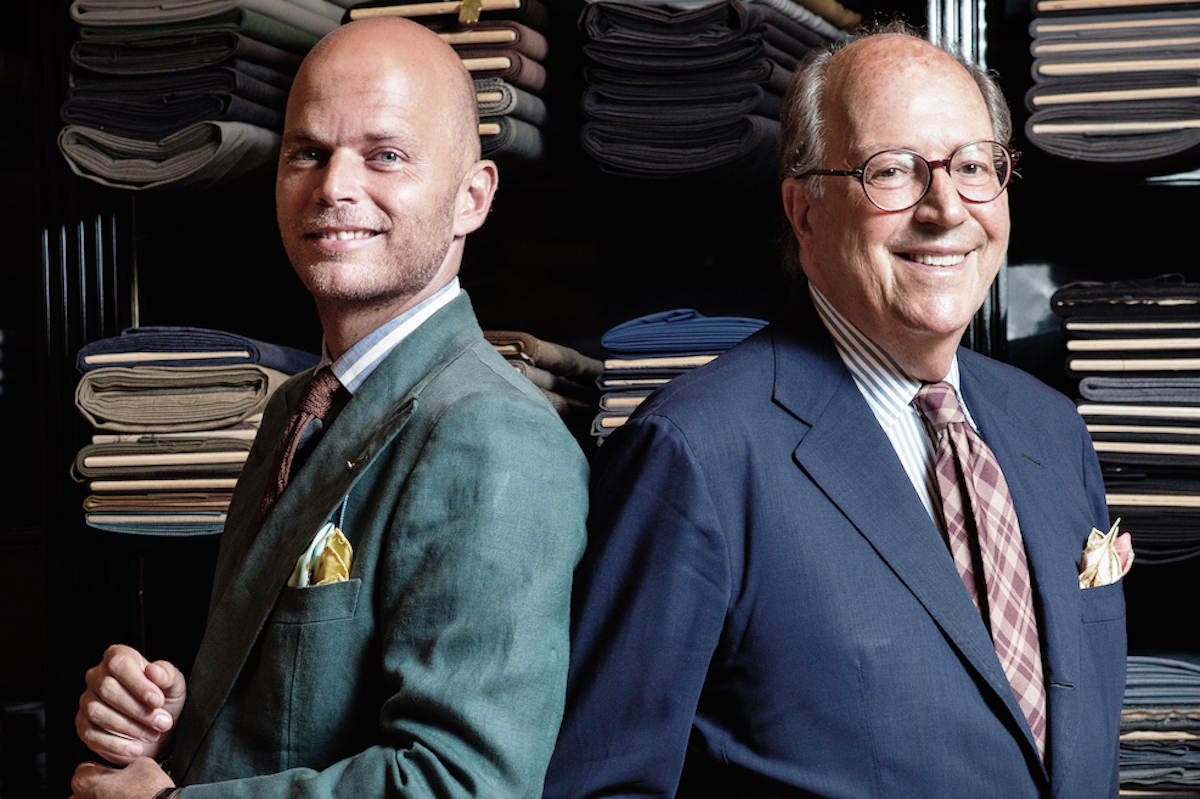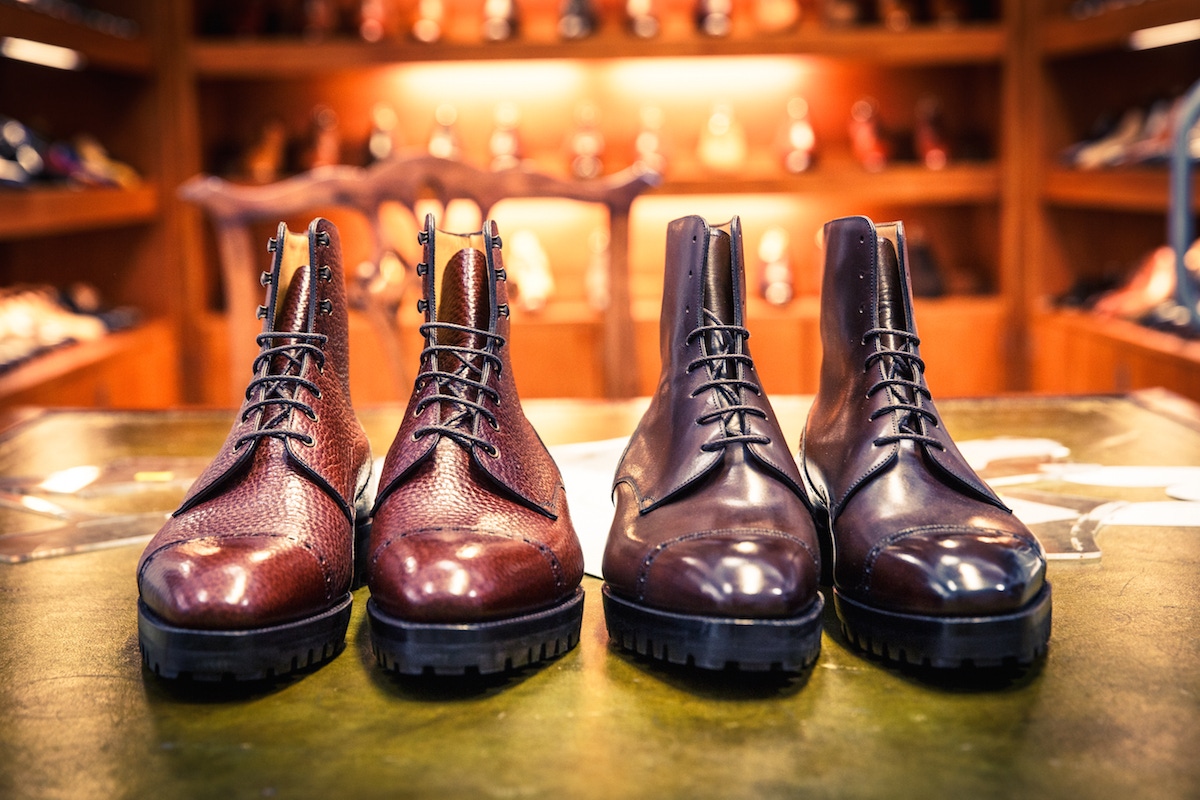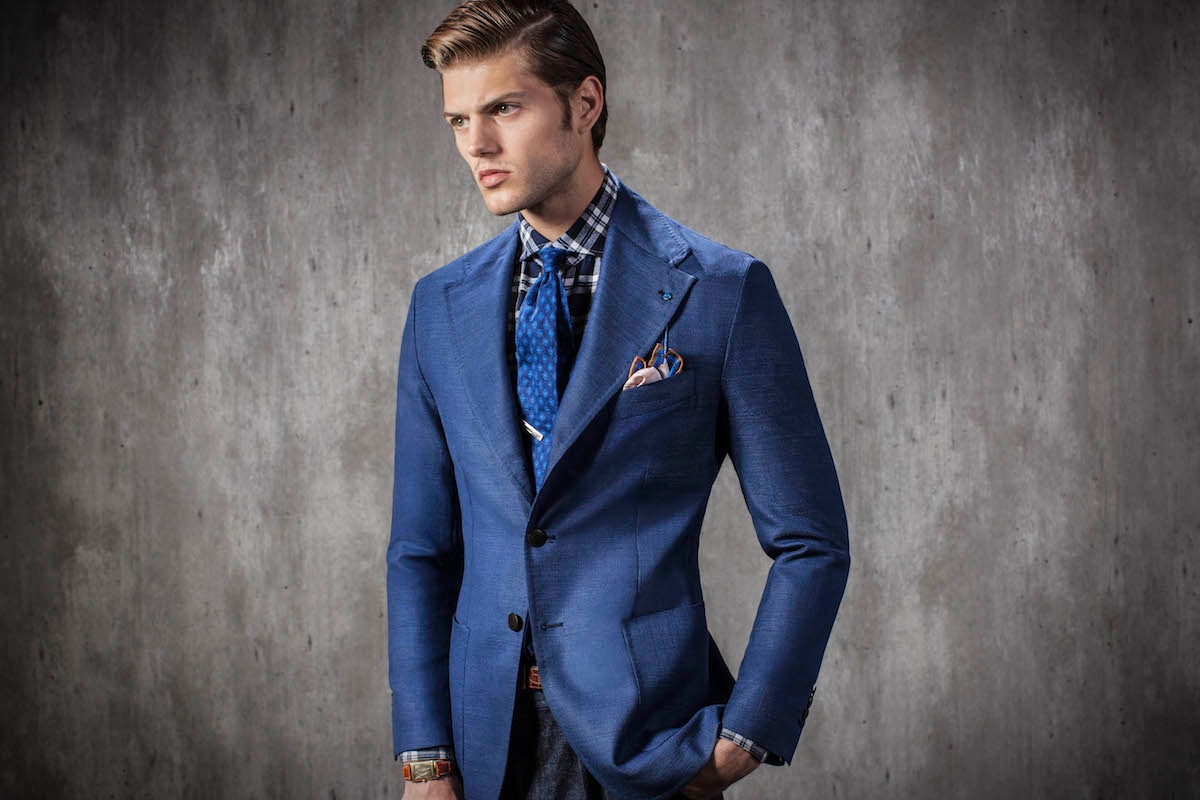Perfect Imperfection: Rubinacci
Originally published in Issue 41 of The Rake, Aleks Cvetkovic delves into how the Rubinacci family have succeeded in establishing a compelling international brand that is rooted in their authentic and charming Neapolitan identity.

More so than perhaps any other nation in Europe, the good people of Italy have embraced the idea of the ‘piccolo maestro’, the ‘small masters’: pockets of family-run tailors that populate the different districts of every cosmopolitan city, quietly serving a loyal local clientele. Such modest enterprises are a far cry from the grand international ateliers of Rubinacci, arguably the king of Italian tailors. The question of how Rubinacci won this crown, and how they propose to protect it, is a fascinating one, best explored from the comfort of their newly acquired Milanese flagship.
When entering the store, one can’t help but feel one is tip-toeing through a Neapolitan pantheon of style, a temple to menswear the likes of which Hadrian himself (by all accounts the most fashionable of the Roman Emperors) would have bowed down to — the epicentre of what, with the establishment of this third store (the other two are in London and Naples), can now be called a truly international menswear brand.
The shop continues through chamber after chamber, walls washed in a sunny shade of saffron, ending with a club-like room filled with easy chairs and a drinks cabinet. This place feels like the heart of the atelier, a space to collapse and refresh when the process of thumbing through swatch-books simply becomes too much to bear.
This room also perfectly characterises the personality of the Rubinacci family: for all its imposing grandeur, this is an intimate space — the Rubinaccis wanted a room where men could come to relax and feel a part of this extraordinary sartorial vision. “So the customer can come and enjoy five minutes with Rubinacci,” as Luca puts it. Indeed, this is precisely what The Rake is doing, having made a pilgrimage to Milan in an attempt to discover the secret of the Rubinaccis’ success — to unravel what has transformed this once modest Neapolitan tailor into an international luxury menswear brand.
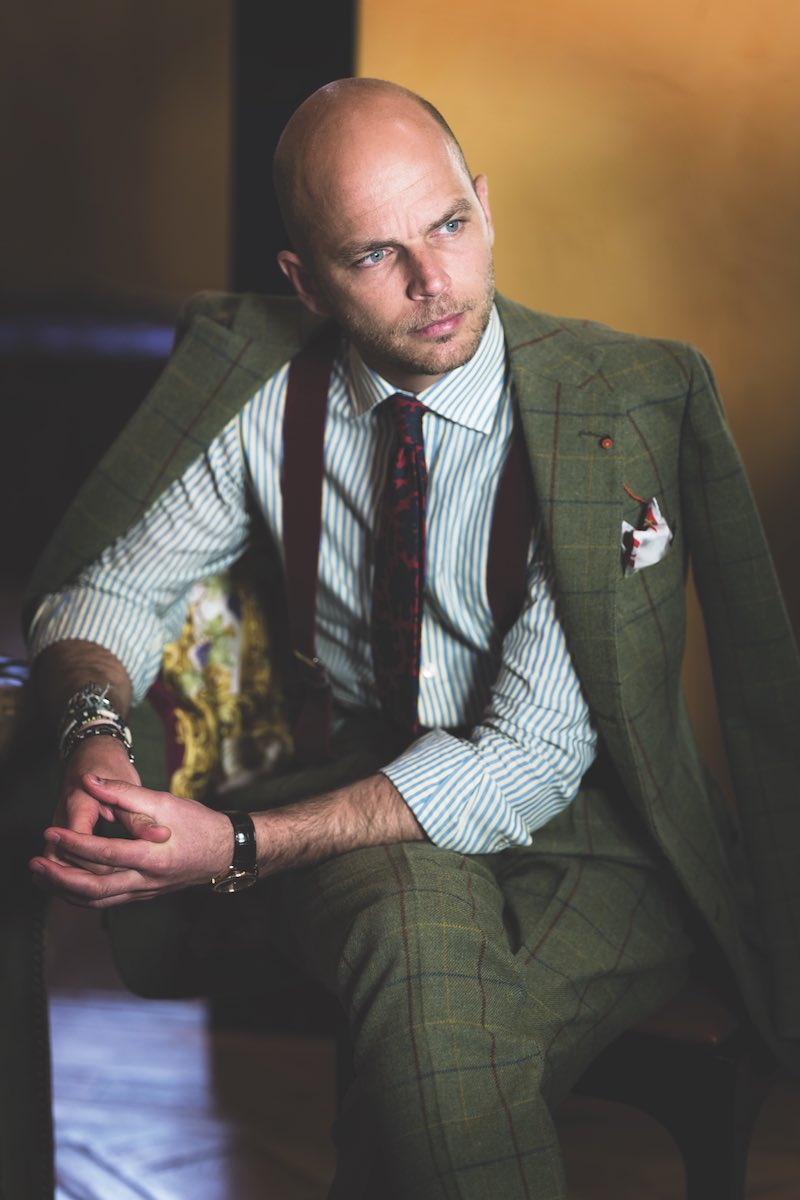
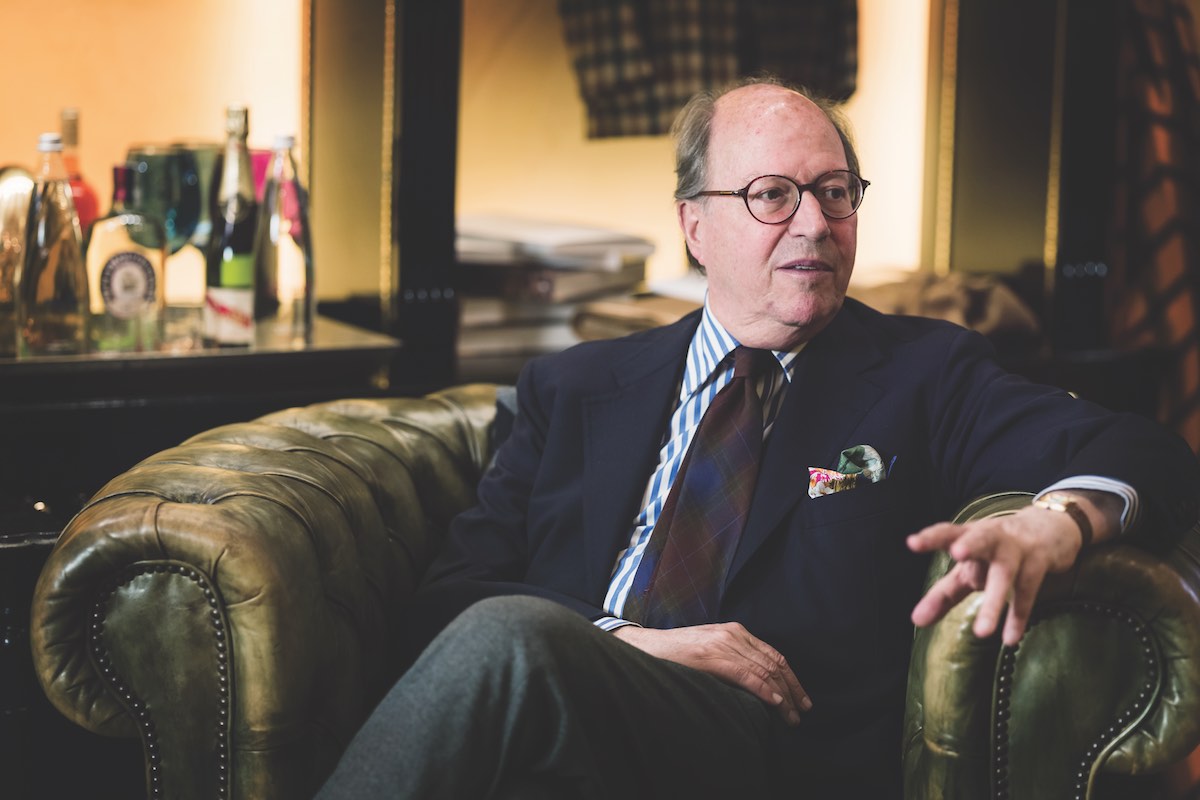
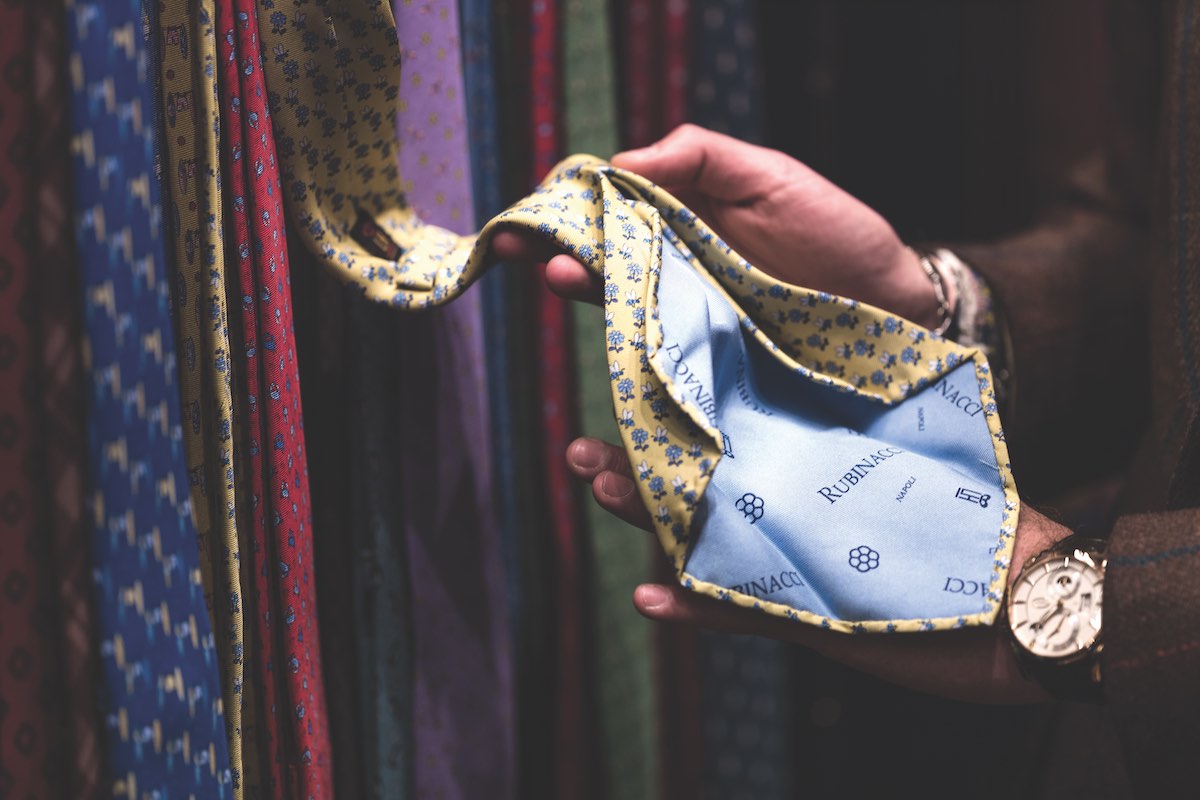
Such riddles are not easily solved, so our starting point is an obvious one: why open the third store in Milan? Luca explains: “Milan is the place to be; Fashion Week is in Milan, and we need to let the world know that we sell luxury. As a tailor, it was enough to have a store in Naples, but as a brand, we needed a home.” Is Rubinacci moving away from its Neapolitan roots then? Seemingly not, because to Mariano, “Milan is the right place to be to express what Naples means to us”. Paradoxical though this might sound, it chimes perfectly with Rubinacci philosophy. The family remains intent on distilling its Neapolitan style, albeit to an international audience. Mariano explains: “It is important to be yourself all the time, to have an ideal or model to achieve and to be consistent in this without any compromise. The quality of our designs is the first thing we must protect as we grow; the colour combinations we use is the second — using colour in the way that we were taught by my father ever since the beginnings of Rubinacci.” Crucially, this characteristic passion for vivacious colour is rooted in the family’s love of Naples. “Napoli is the city of colours. I don’t want to be idealistic, but everything has light — the sunshine always lends the city a unique joie de vivre.”
By playing with colour, the Rubinaccis have created a blueprint that is instantly and instinctively recognisable. This is why, as Luca explains, customers identify so strongly with Rubinacci’s unique style. “More than a collection, we try to design something that evokes a lifestyle every season,” he says. “That’s why colour is so important to us, it represents the way we want to live and how we want our customer to enjoy wearing Rubinacci.”
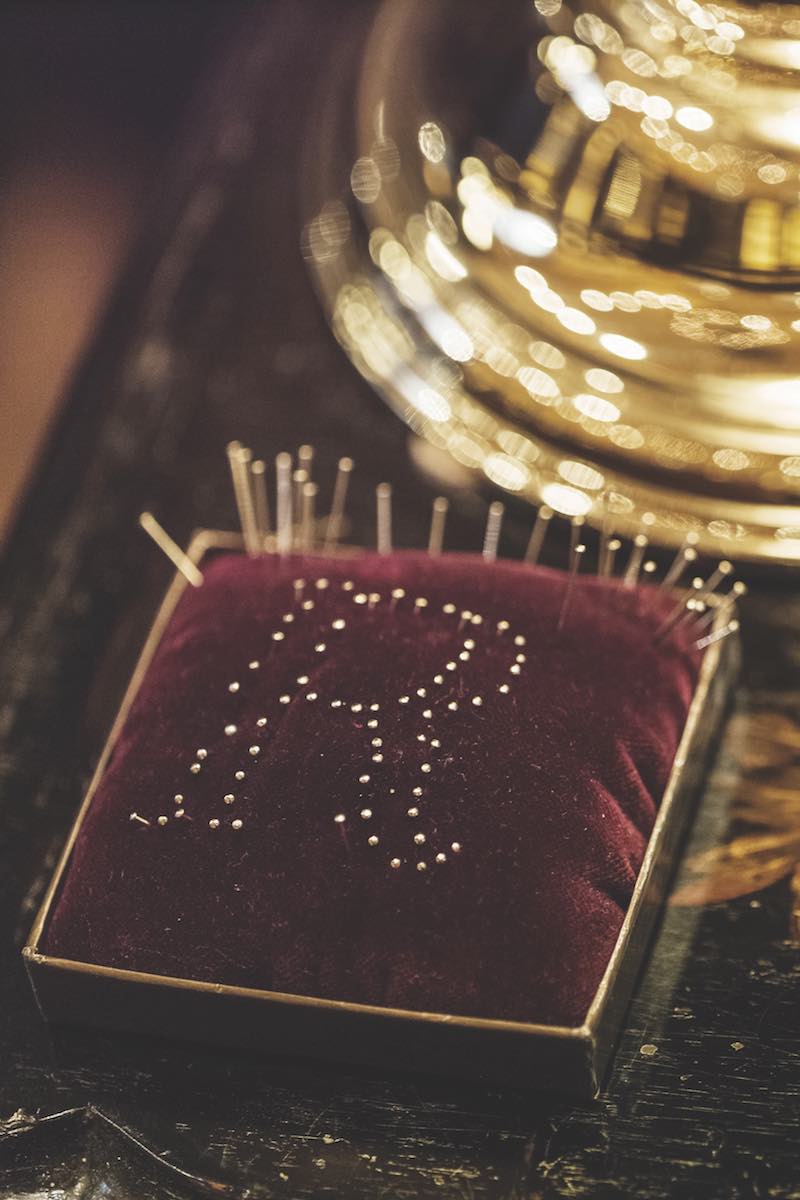
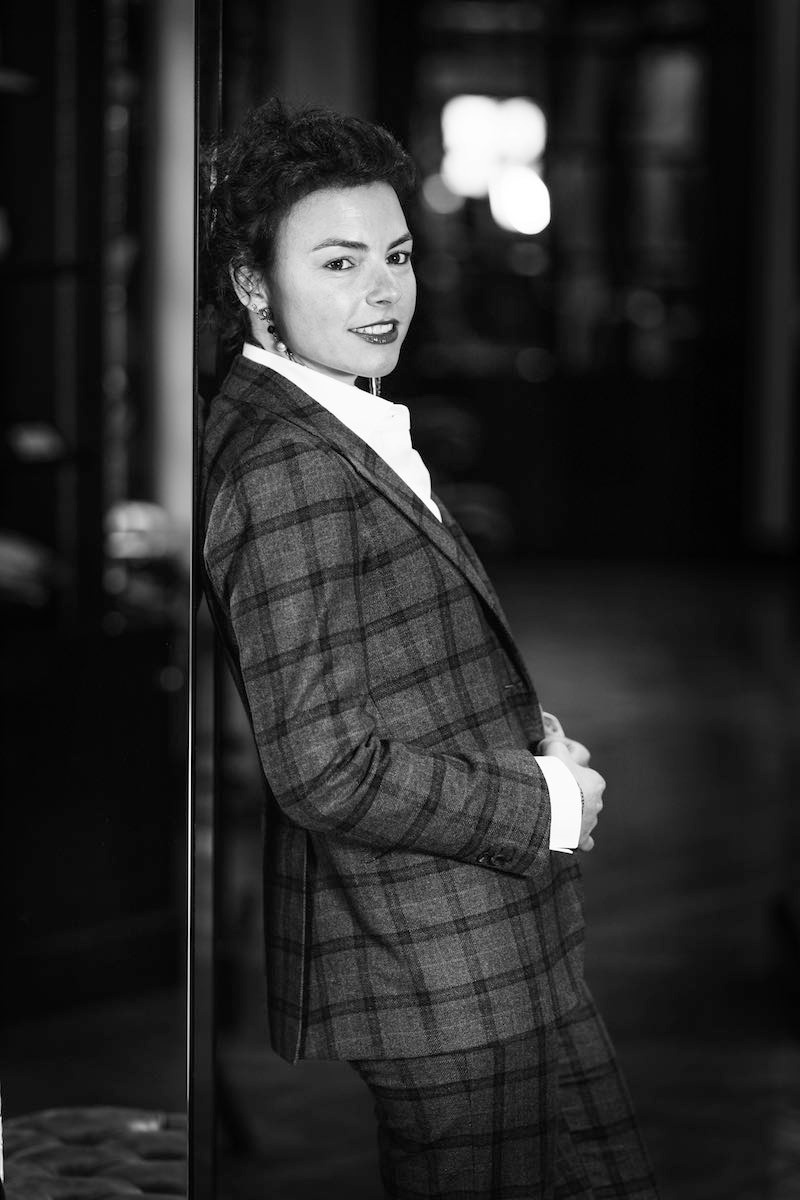
Their personal ethos aside, another key ingredient in the Rubinacci recipe for success is the way they communicate with their customers. “Our first rule is to make our customer happy,” says Luca. “If a customer comes in and he wants a blue suit for work, we’ll give him a classic white shirt and a knitted tie, but we’ll also suggest adding a pair of violet trousers in flannel or linen for the weekend — we like to have fun and give customers new ideas. We see ourselves as ‘bespoke stylists’, because when customers come to us, they come to a specialist not only in tailoring, but in Neapolitan design.
“With so many brands, you enter a store, find something in the size you want, and buy it. At Rubinacci, you can ask for someone to help you to develop your personal style. We take pride in understanding the customer, but we always offer a little bit of Rubinacci on top.” This attitude is fundamental to the brand’s international expansion — it seems that the Rubinaccis never set out to do anything other than create things that evoke their own personal taste, yet the resulting sense of Neapolitan authenticity in their style and their clothes is universally popular.
Perhaps the greatest challenge to Rubinacci’s continued growth is retaining this authenticity as it continues to expand. Again, Luca offers a solution: “Whenever we work with a new retailer, we build a capsule collection just for them. We ask them what their customers need and want.” Mariano notes that, “We are selective. We find people that have the same mentality, that share our inspirations.” Again, one’s overriding impression is that the Rubinaccis will not allow anything to compromise their personal vision. Chiara’s experience in establishing the iconic London store was much the same: “London was very important because it made us international. People thought we were crazy when we opened that shop. Fortunately, it has been a huge success.”
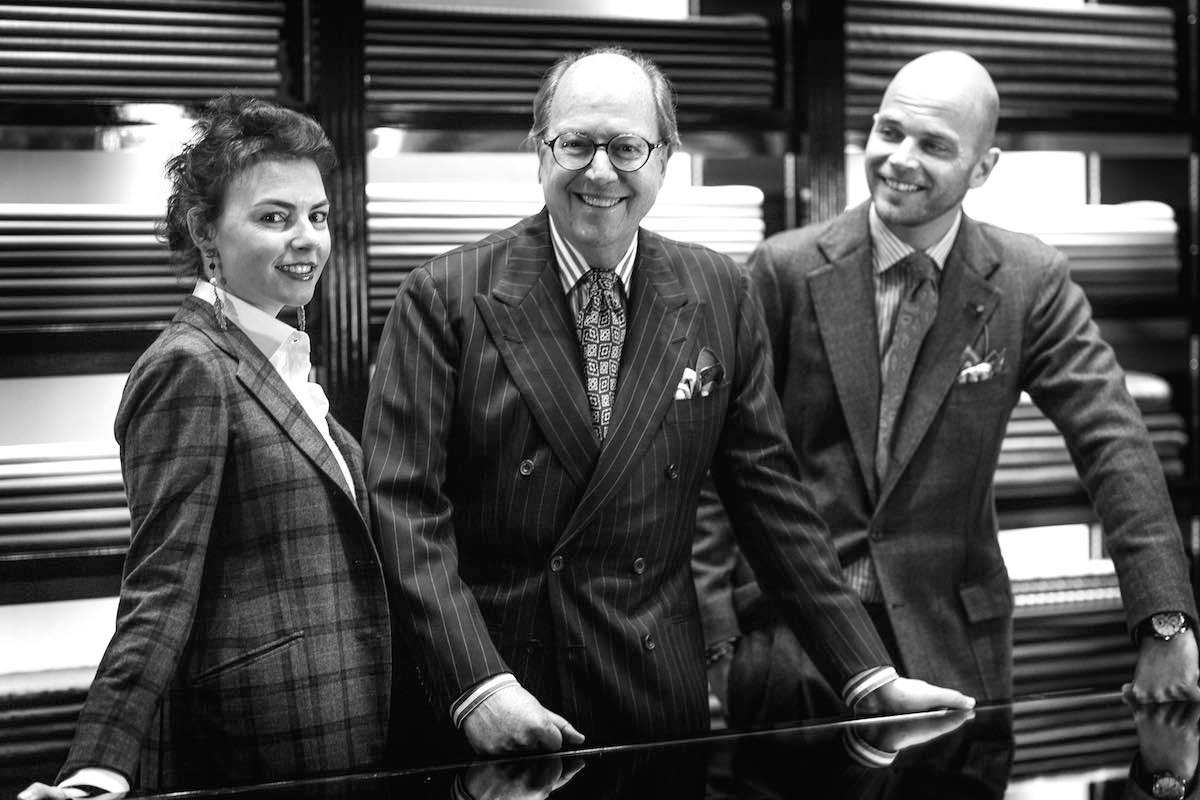
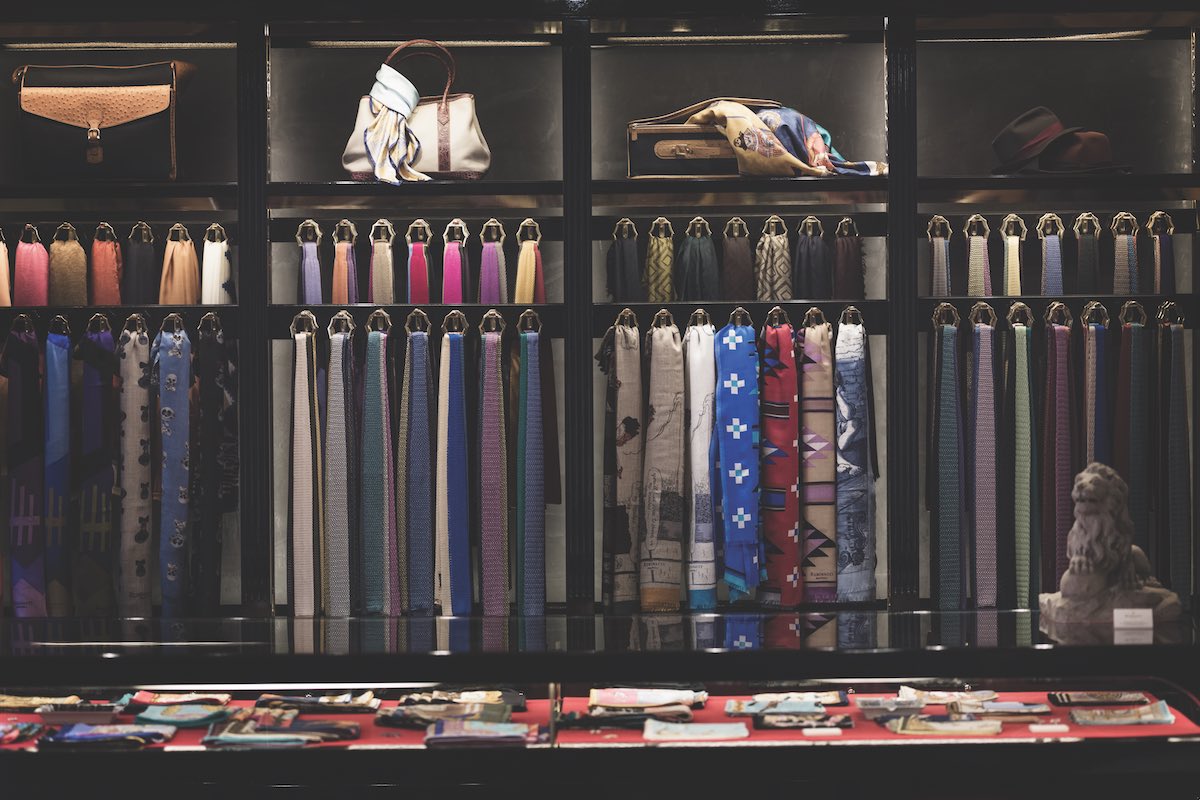
There is perhaps one more secret to Rubinacci’s success. As the conversation draws to a close, we talk about that most Italian of philosophies: sprezzatura. “For us,” says Luca, “we like to think that our clothes offer a sense of perfect imperfection, which is the right meaning of sprezzatura. We don’t always like sprezzatura — it is used too much and it comes from sprezzi, which means something that is broken, that is ‘not right’. For us, we like to have something that is not quite correct in a beautiful, complex, complete look that nonetheless feels right.” Mariano adds: “There are many tailors in Naples that wish to create something with sprezzatura, so they intentionally wish to make something with imperfections — this is wrong. Because if there is an imperfection in your style, it has to be something natural.
“One side of my face differs from the other, so I am imperfect — imperfection is beauty, culture and the world we live in. Perfection, on the other hand, is made by machine, and this is no good. If we are perfect, we are boring.”
Perhaps this is the real secret of Rubinacci’s success: the family has established an extraordinary international brand rooted in their own authentic Neapolitan identity, a brand that embraces their natural tastes and style, creating sartorial gold dust in the process — a compelling sense of ‘perfect imperfection’.
This article originally appeared in Issue 41 of The Rake.

